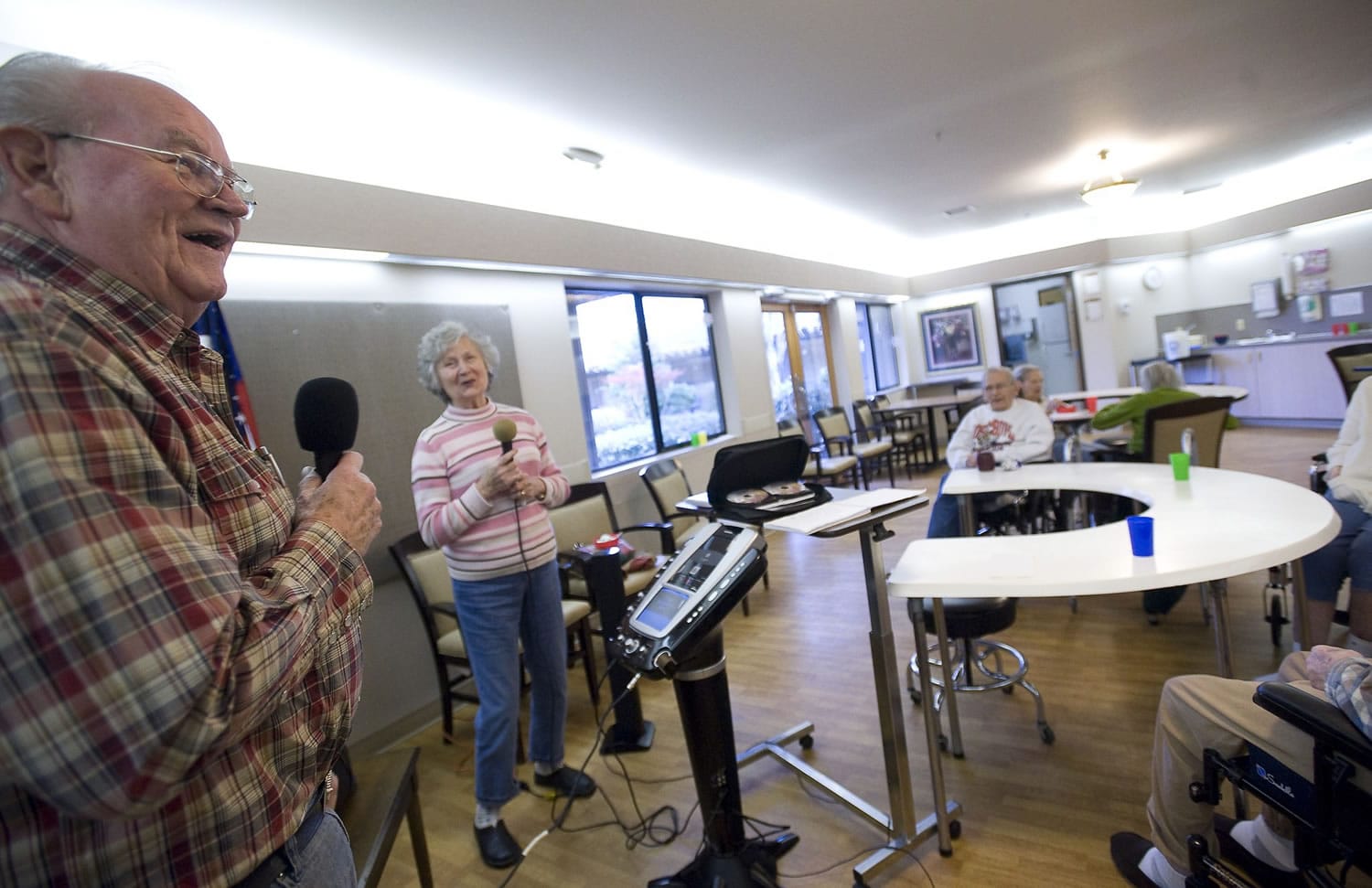During parties, provide the patient with a quiet room.
Use name tags at gatherings.
Reduce outings from all day to one to two hours.
Trade out cooking for a potluck.
Hold a family meeting about how to divide tasks.
Use holiday cards and letters as a learning opportunity about the disease.
Ask for help.
Prepare visitors for what to expect from the patient, and how they can respond.
Arrange for respite care to complete holiday tasks or just to take a break.
Source: Shanti Potts, caregiving instructor at Clark College
During Barry and Laurel Peterson’s more than 50 years of marriage, one of the Brush Prairie couple’s cherished holiday traditions was to decorate the Christmas tree together.
“I put the lights on the tree; she always put the ornaments on the tree,” said Barry Peterson, 77. “This year, she didn’t even understand what it was.”
Laurel Peterson, 76, was diagnosed with Alzheimer’s disease in 2006, but it wasn’t until two years ago that she lost all memory of the significance of the holiday, Barry Peterson said.
“What do you do for somebody who doesn’t understand Christmas?” Barry Peterson asked.
That sense of helplessness and frustration is common among family members of people diagnosed with Alzheimer’s and other forms of dementia, experts say. The disease afflicts about one in eight people older than 65, according to the Alzheimer’s Association. The holidays can intensify the emotions that come along with having a family member with the disease. But experts say making a few modifications to the holidays can make them go more smoothly.



